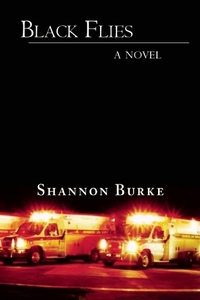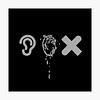You need to sign in or sign up before continuing.
Take a photo of a barcode or cover
"A lanky kid in a Knicks jersey held his right arm with his left hand."
~Disturbing. I had it in my head that this was a true story, for some reason, so the whole time I read it, I was horrified. Even when I finally clued in to the fact that it was a novel, I was still pretty horrifed. Yuck.
~Disturbing. I had it in my head that this was a true story, for some reason, so the whole time I read it, I was horrified. Even when I finally clued in to the fact that it was a novel, I was still pretty horrifed. Yuck.
This is a startling look at EMS life. I have always admired paramedics because they see the patient in the field. It is so much more personal than on a stretcher in an ED. And the setting are very often not conducive to quick, excellent care. It is amazing and disturbing work.
challenging
dark
sad
tense
fast-paced
Diverse cast of characters:
Yes
Graphic but satisfying read about paramedics in Harlem in the 1990's where violence was erupting.
A slim, minimalist little bite of a novel about paramedics in Harlem in the early '90's. The author draws on his own life experience in a book filled with scattershot impressions - much the way you might imagine a day as a paramedic might be.
The characters & the sense of place are clear & drawn with depth despite the relative brevity of the book. These people are real & you care about them & about what happens to them, around them, because of them. This book reminds me a bit of [b:Bringing Out the Dead|603834|Bringing Out the Dead|Joe Connelly|http://photo.goodreads.com/books/1176215788s/603834.jpg|963651], both the book & the movie, which I also really enjoyed.
This is a book that offers no answers & many questions, but one that mostly takes you for an ambulance ride through parts of a city that have been left behind. Beautiful, insightful, unforgettable - I really loved this book.
The characters & the sense of place are clear & drawn with depth despite the relative brevity of the book. These people are real & you care about them & about what happens to them, around them, because of them. This book reminds me a bit of [b:Bringing Out the Dead|603834|Bringing Out the Dead|Joe Connelly|http://photo.goodreads.com/books/1176215788s/603834.jpg|963651], both the book & the movie, which I also really enjoyed.
This is a book that offers no answers & many questions, but one that mostly takes you for an ambulance ride through parts of a city that have been left behind. Beautiful, insightful, unforgettable - I really loved this book.
Black Flies by Shannon Burke is a masterpiece of characterization and plot. Burke, a former paramedic in Harlem, New York, weaves his disjointed plot through a series of in-depth characterizations and vivid event descriptions. He traces the steps rookie Ollie Cross takes as he tries to fit in with the Station 18 crew and still hold onto his dreams of medical school, and along the way he spirals out of control, only to emerge on the other side of a black hole with his first save and a sense of purpose.
Ollie is green according to the other paramedics in his unit, simply because he wants to save lives and is gung-ho about his job. Rutkovsky is assigned as his partner, and he's a hard-nosed paramedic with a military past. LaFontaine is the department nut, while Verdis is his foil, interested in following the book and attending each patient with courtesy and care. Hatsuru is often in the background with a medical text in his hand while they await the next call or are on lunch break, and Marmol and Rivett round out the rest of the crew.
Ollie joins the paramedic unit to gain experience while he studies for the MCATs, hoping to improve his scores and get into medical school. Amidst high crime rates, homelessness, and rampant drug use in the streets of Harlem, these medical professionals strive to save the lives of people some would say are unworthy of saving. This novel examines the struggle these paramedics face daily, regarding split-second decisions that could either save drug addicts who will only end up back on the street stung out or ending their misery by refusing to treat them. The moral imperative driving these paramedics to save lives is constantly tested on the streets.
One fateful event in the novel pushes one of these paramedics over the edge, causing him to lose everything, while leaving the remaining paramedics to rationalize his decision and examine their own moral compass to determine whether that decision is something they all agree with or something that casts a shadow over all of their medical decisions and actions. In a way this decision becomes like so many black flies hovering over Ollie and the rest of the station.
Ollie is green according to the other paramedics in his unit, simply because he wants to save lives and is gung-ho about his job. Rutkovsky is assigned as his partner, and he's a hard-nosed paramedic with a military past. LaFontaine is the department nut, while Verdis is his foil, interested in following the book and attending each patient with courtesy and care. Hatsuru is often in the background with a medical text in his hand while they await the next call or are on lunch break, and Marmol and Rivett round out the rest of the crew.
Ollie joins the paramedic unit to gain experience while he studies for the MCATs, hoping to improve his scores and get into medical school. Amidst high crime rates, homelessness, and rampant drug use in the streets of Harlem, these medical professionals strive to save the lives of people some would say are unworthy of saving. This novel examines the struggle these paramedics face daily, regarding split-second decisions that could either save drug addicts who will only end up back on the street stung out or ending their misery by refusing to treat them. The moral imperative driving these paramedics to save lives is constantly tested on the streets.
One fateful event in the novel pushes one of these paramedics over the edge, causing him to lose everything, while leaving the remaining paramedics to rationalize his decision and examine their own moral compass to determine whether that decision is something they all agree with or something that casts a shadow over all of their medical decisions and actions. In a way this decision becomes like so many black flies hovering over Ollie and the rest of the station.
Although it's still January, I believe I may have just read the best book I'll read this year, or at least one of the top three.
This is a very specific story that addresses much bigger aspects of human nature. It's told in a very unconventional way, and is essentially plotless. That such a story has such an impact and says so much is a testament to Mr. Burke's writing skill. Who is this guy, and why have I never heard of him until now?
This novel, which is so vivid that I can only assume most of it was based on the author's real experience as an NYC paramedic for five years, could serve as a textbook for "show, don't tell." The real subjects of the book are simply not discussed. Why? Because it's a book about men, and men simply don't talk about this stuff. We don't talk about the uplifting effects of friendship or the way failure makes us behave badly, or how altruism makes us feel good and how sometimes being abusive also makes us feel good, until it starts feeling like failure. It just isn't discussed. But among men who work in highly consequential situations, who form tight, impenetrable teams, these unspoken subjects have a tendency to spill sideways out of the group and into the world at large, and the world at large cannot afford to ignore them.
We spend eleven months with the narrator, riding in an ambulance in Harlem. He's a rookie, doesn't know the ropes, and is thus strongly influenced by personalities both benevolent and malign. Good things happen, bad things happen, every day is generally the same but specifically different. Without calling attention to it, enough specifics pile up to eventually form into something resembling a plot, though it's difficult, in retrospect, to say exactly what the plot was. Every day, they get through the day. Every morning, they start over. Some can endure it and some can't.
Page by page, this is thrilling and appalling in equal measure. At the end, there's some very big ideas about the nature of altruism, the nature of desperate people, the awful lives of slum dwellers, how men bond and support one another and the price paid for weakness. The shortness of this book increases rather than diminishes its impact.
I'll be thinking about this one for a long time.
I was led to this book by an excellent review from Michelle; take her warnings seriously if you intend to read this.
This is a very specific story that addresses much bigger aspects of human nature. It's told in a very unconventional way, and is essentially plotless. That such a story has such an impact and says so much is a testament to Mr. Burke's writing skill. Who is this guy, and why have I never heard of him until now?
This novel, which is so vivid that I can only assume most of it was based on the author's real experience as an NYC paramedic for five years, could serve as a textbook for "show, don't tell." The real subjects of the book are simply not discussed. Why? Because it's a book about men, and men simply don't talk about this stuff. We don't talk about the uplifting effects of friendship or the way failure makes us behave badly, or how altruism makes us feel good and how sometimes being abusive also makes us feel good, until it starts feeling like failure. It just isn't discussed. But among men who work in highly consequential situations, who form tight, impenetrable teams, these unspoken subjects have a tendency to spill sideways out of the group and into the world at large, and the world at large cannot afford to ignore them.
We spend eleven months with the narrator, riding in an ambulance in Harlem. He's a rookie, doesn't know the ropes, and is thus strongly influenced by personalities both benevolent and malign. Good things happen, bad things happen, every day is generally the same but specifically different. Without calling attention to it, enough specifics pile up to eventually form into something resembling a plot, though it's difficult, in retrospect, to say exactly what the plot was. Every day, they get through the day. Every morning, they start over. Some can endure it and some can't.
Page by page, this is thrilling and appalling in equal measure. At the end, there's some very big ideas about the nature of altruism, the nature of desperate people, the awful lives of slum dwellers, how men bond and support one another and the price paid for weakness. The shortness of this book increases rather than diminishes its impact.
I'll be thinking about this one for a long time.
I was led to this book by an excellent review from Michelle; take her warnings seriously if you intend to read this.




